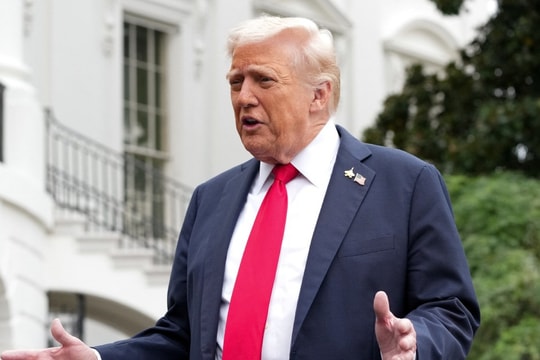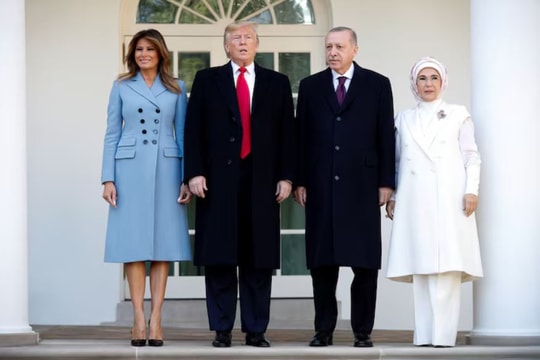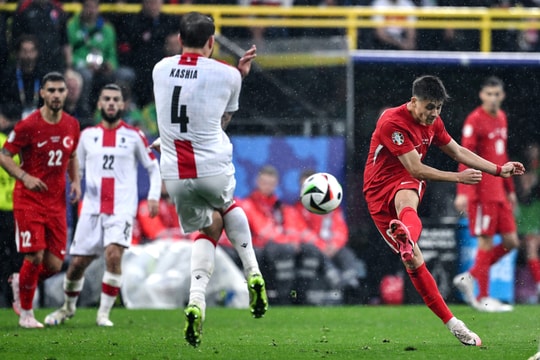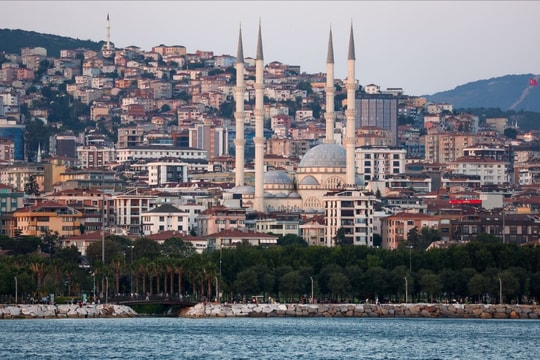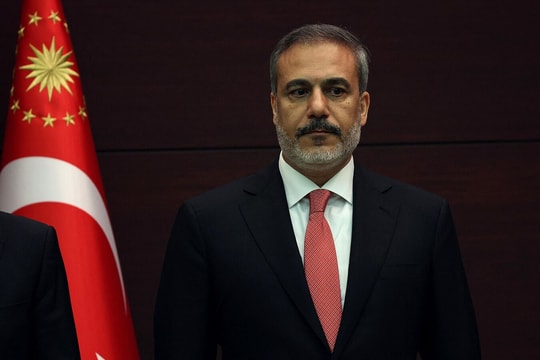EU 'whistles' Türkiye over gas exploration off Cyprus
(Baonghean) - The relationship between Türkiye and the West has entered a new "stormy" phase when, earlier this week, the European Union (EU) decided to suspend contact between high-ranking officials, as well as withdraw financial aid to Ankara.
All in response to Türkiye's gas exploration in waters the EU claims are Cyprus's territorial waters.
"Hot" because of gas
To understand the story, we must start with Cyprus, which has been divided into two regions – one Greek in the south and one Turkish in the north – since Türkiye invaded the country in 1974. The government in northern Cyprus has received sole recognition from Ankara.
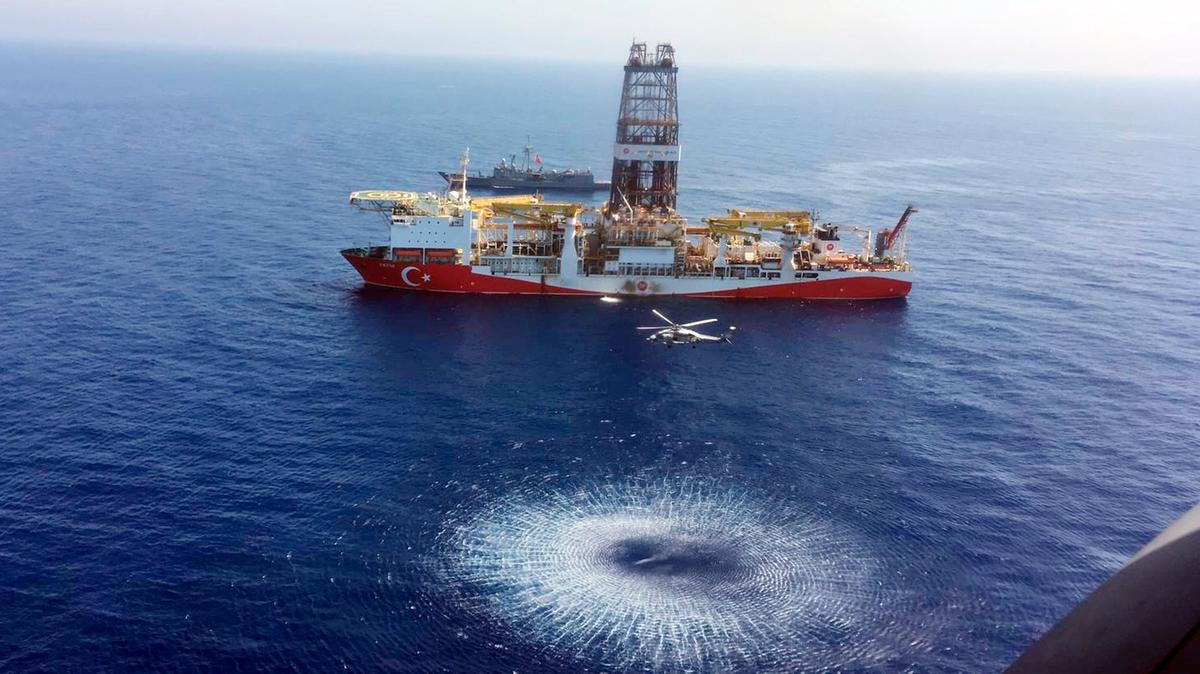 |
| Helicopters fly over the Turkish drilling ship 'Fatih' deployed to the Eastern Mediterranean, near Cyprus. Photo: AP |
Meanwhile, Türkiye has said that Cyprus - an EU member with an internationally recognized government that controls most of the island - has no right to unilaterally explore for gas.
Ankara says Cyprus must comply with a plan put forward by the “Northern Cyprus” leader to share gas revenues, and it insists it has the right to carry out exploration missions on its own without approval from the government in the capital Nicosia.
Many peace efforts have been made so far but have failed to resolve the Cyprus conflict or unify the island, and the sea's large gas reserves further complicate the situation.
In July, Türkiye sent a second ship to drill for gas off the coast of Cyprus, sparking outrage in Nicosia, which then turned to Brussels for help.
The EU has called Türkiye's move in Cypriot waters illegal, before announcing specific measures against Ankara on July 15.
“The Council states that, despite repeated calls by the European Union to end its illegal activities in the Eastern Mediterranean, Türkiye has continued its drilling operations west of Cyprus and launched a second gas drilling operation north-east of Cyprus within Cypriot territorial waters.”
It is worth noting that the wider maritime area around Cyprus – which encompasses the coasts of Turkey, Syria, Lebanon and Israel – not only includes areas with large natural gas reserves, but is also of strategic importance to the military forces of regional and world powers.
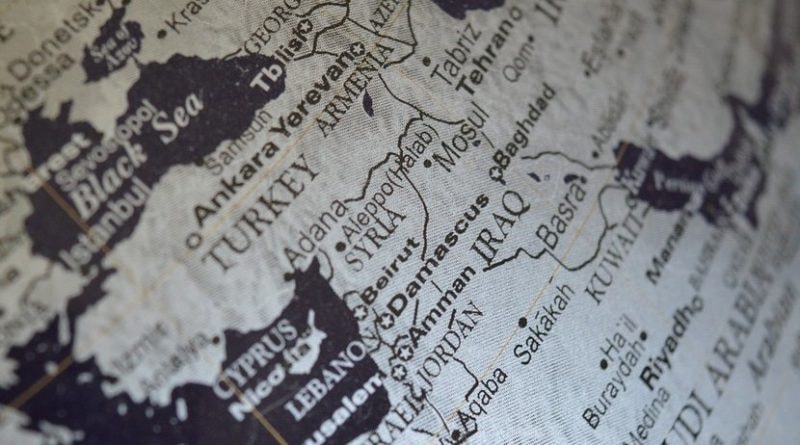 |
| Cyprus has a strategic location in the Mediterranean. Photo illustration Eurasiareview |
Cyprus is home to a permanent British military base, while Russia also has a large naval base on the Syrian coast less than 150 km from Cyprus, and US and other navies operate in or pass through Cyprus' waters on missions in Africa and the Middle East.
Sanctions, increased pressure?
For these reasons, after a foreign ministers' meeting in Brussels, Belgium on July 15, EU member states said they agreed to suspend $164 million in aid to Türkiye, as well as temporarily put aside negotiations to reach an agreement in the aviation sector.
The EU has also asked the European Investment Bank to review its loans to Türkiye, which reached nearly $434 million last year.
It can be seen that the EU has shown "strong hands" and is tough on Türkiye when making the above moves, because in reality, Ankara has often benefited from the financial resources of the "old continent" alliance within the framework of this country's currently stalled efforts to join the European bloc.
Meanwhile, the aviation agreement under negotiation, once realized, will lead to the possibility of increasing the number of tourists using Türkiye's airports, especially the country's main international airport in the capital Istanbul, as a transit hub.
The EU measures come just days after Türkiye's relationship with the US hit a snag, sparked by Ankara's receipt of the first batch of Russian-made S-400 surface-to-air missile systems for NATO member Türkiye.
Washington has issued sharp warnings that it will sanction Türkiye over the purchase, but President Recep Tayyip Erdogan has ignored them and continued with the deal with Moscow.
The measures announced by EU foreign ministers earlier this week fall short of “full-scale” sanctions against Turkish companies involved in offshore gas drilling in the eastern Mediterranean.
However, those "blows" are also heavy enough because they were launched by the "old continent" in the context of the Turkish economy struggling to cope and possibly facing heavy, prolonged economic sanctions from both the EU and the US.
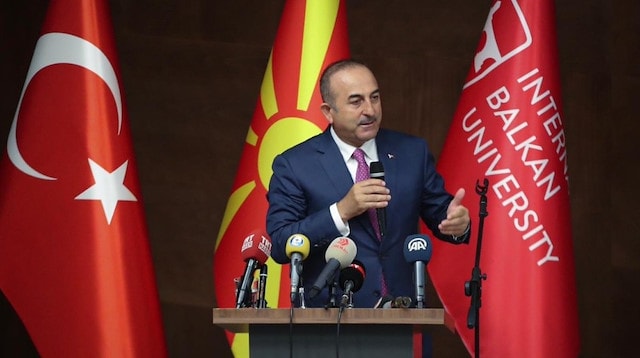 |
| Turkish Foreign Minister Cavusoglu said there was no need to take the EU's sanctions decisions seriously. Photo: Reuters |
For its part, Türkiye was quick to respond, stating that blocking EU communications or financial support would not pressure it to stop its search for oil and gas off the coast of Cyprus.
On July 16, the country's foreign minister even said that the move "shows how biased and partisan the EU is on the Cyprus issue." A statement from the Foreign Ministry in Ankara added: "These decisions will not in the slightest affect our country's determination to continue its activities in the Eastern Mediterranean."
Privately, Foreign Minister Mevlut Cavusoglu also issued a separate warning last week that Ankara would step up drilling activities off Cyprus if the EU pushed ahead with sanctions.
With this escalating tone alone, it can be somewhat guessed that the knot in the EU-Ankara tension is difficult to untie overnight, and the difficult situation belongs to Türkiye when they simultaneously "anger" both "big guys" - the EU and the US in the story of Cyprus gas and Russia's S-400.

